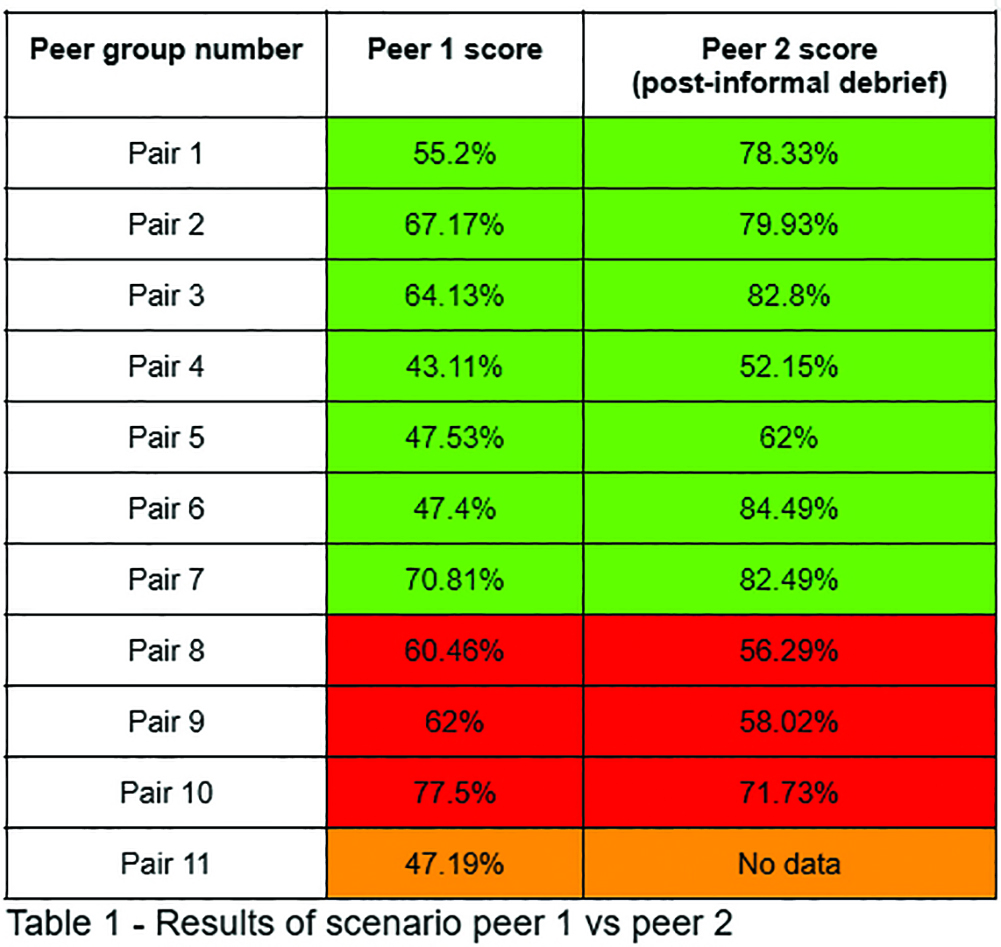
Nursing and Midwifery Council (NMC) approved institutions can deliver up to 600 hours of Simulated Practice Learning (SPL) within the 2,300 practice hours, pre-registration nursing students are required to register [1]. Many approved Higher Education Institutions (HEIs) are using immersive technology-enhanced learning as part of a blended approach in their SPL delivery. Virtual Reality (VR) is commonly used to simulate immersive environments where learners can practise decision-making skills within different clinical contexts. Alongside this, there is a need for 3rd year nursing students to develop peer supervision and coaching skills in preparation for registration [2]. The purpose of this work is to report on an evaluation of a teaching intervention, utilising both VR and peer-to-peer learning.
A peer-to-peer VR learning experience was delivered to 22, 3rd year children’s nurses using Oxford Medical Simulation (OMS) software. Students were paired, with one undertaking a simulation scenario using a VR Oculus headset, which was streamed to a computer screen. The second student observed this stream and made notes on their peers’ performance for feedback. The pair then had an unstructured debrief to explore ways to improve their performance. The roles were then reversed with the observing student completing the same scenario. Following this activity, the wider group came together for a facilitated debrief using the diamond debrief model [3].
Data collection included quantitative and qualitative student feedback gathered via a scannable QR code and quantitative data from the OMS platform’s feedback scoring system.
Qualitative findings brought up two main themes: translating theory to practice & and peer-to-peer support. Limitations of using immersive technology were also highlighted.
Quantitative results showed an overall improvement in clinical practice between the peer attempts. These results are seen in Table 1. Out of the 11 pairs of participants, 7 scored, on average, 18.12% better than their peers. Of the 3 pairs of participants that scored lower, they were 4.64% lower than their peers.
Repeated peer-supported VR scenarios have the potential to improve knowledge and enhance peer supervision. Importantly, the post-scenario debrief was positively received by the majority of learners to consolidate their in-scenario peer learning. We suggest that the value of using this approach within SPL may be an effective way for 3rd year student nurses to acquire knowledge and develop peer supervision skills. Challenges arose surrounding the use of a VR headset and limitations in using a virtual platform.
As the submitting author, I can confirm that all relevant ethical standards of research and dissemination have been met. Additionally, I can confirm that the necessary ethical approval has been obtained, where applicable.
1. Nursing & Midwifery Council (NMC). Simulated Practice Learning [Internet]. 2024 Available from: https://www.nmc.org.uk/standards/guidance/supporting-information-for-our-education-and-training-standards/simulated-practice-learning/.
2. Yoong SQ, Wang W, Chao FFT, et al. Using peer feedback to enhance nursing students’ reflective abilities, clinical competencies and sense of empowerment: A mixed-methods study. Nurse Education in Practice. 2023;69:1–21. doi: 10.1016/j.nepr.2023.103623.
3. Jaye P, Thomas L, Reedy G. ‘The Diamond’: A structure for simulation debrief. The Clinical Teacher. 2015;12(3):171–175. doi: 10.1111/tct.12300.

 |